For The Greater Good
As our community grows, we will be forced to make difficult choices. What would you sacrifice in service of the greater good?
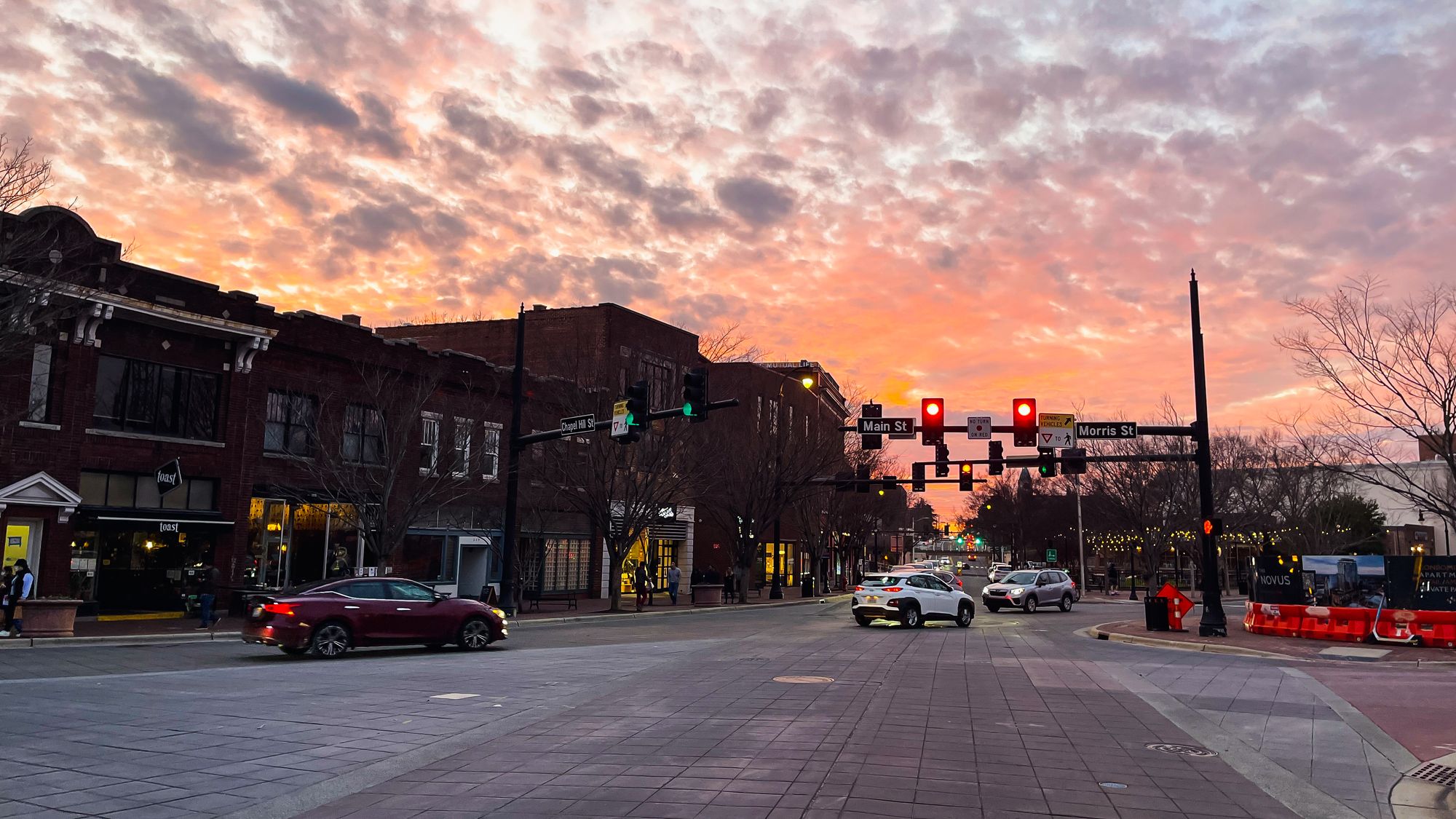
Living amongst other people means you’re in a constant state of giving and taking. Even if you’re all alone in nature, the planet requires the same contract. There’s no escape. The question we’ve been wrestling with in Durham is who’s giving, who’s taking, and how much?
As a bike commuter, that give and take is about safety. Giving up the middle of the lane to cars when there’s no bike path means taking a risk on drivers nudging you further into the shoulder which are often full of debris like glass and rocks. Taking the full lane gives you more control as a cyclist, but it aggravates drivers and makes them impatient, causing them to tailgate or attempt to pass in a congested environment.
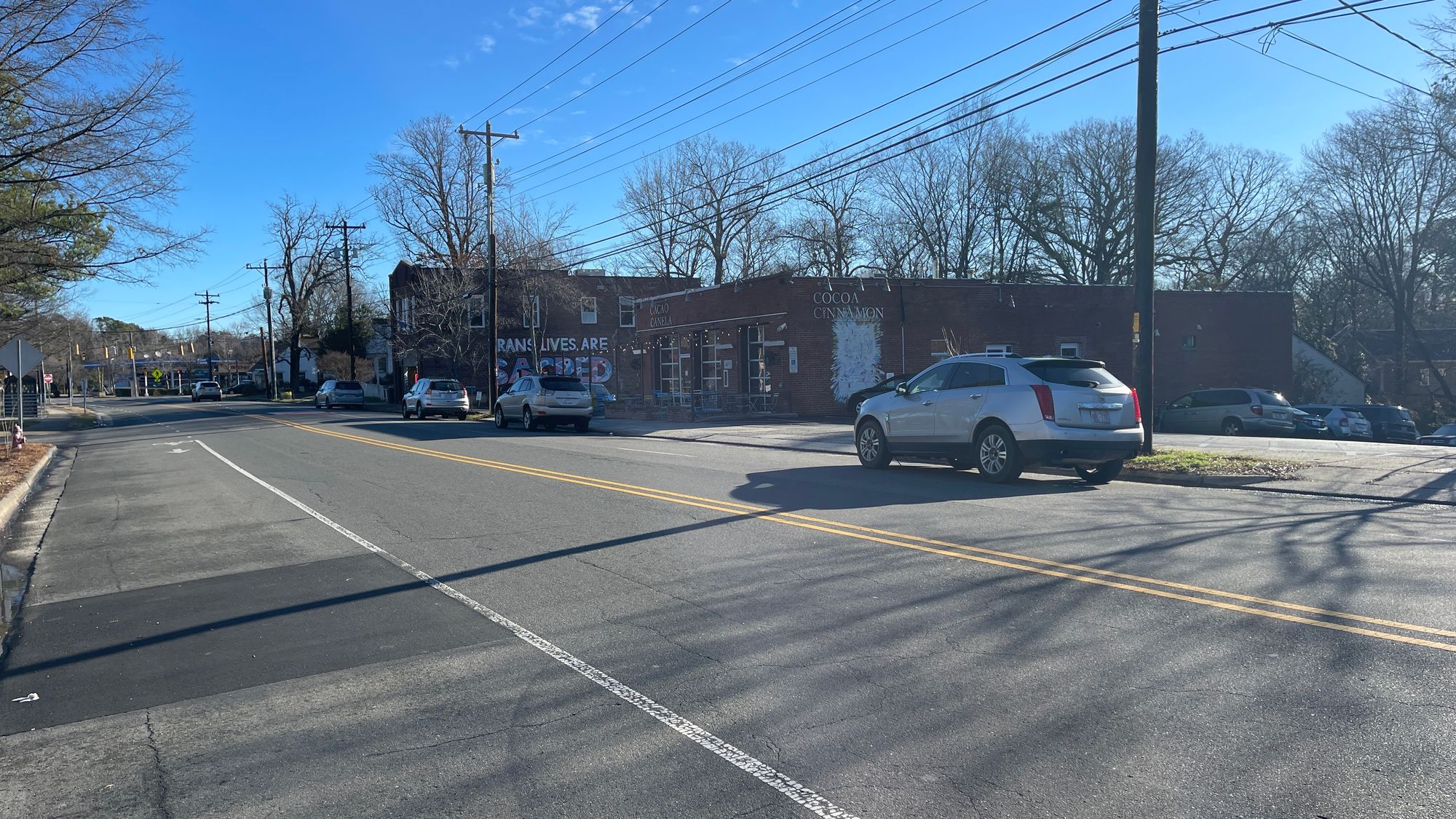
On a recent ride, I passed four cars in a one-block span all parked in the bike lane. Micro aggressions like these come with the territory. Part of the agreement when installing bike lanes is that drivers get their pathway back unimpeded by slower travelers, and cyclists get a safe reprieve from the torment of automobiles. Parking in the bike lane breaks that agreement. Sure, it might be more convenient to park right in front instead of in either of the parking lots adjacent to the building, but your personal choice takes away an important community good for many others. Is it worth it?
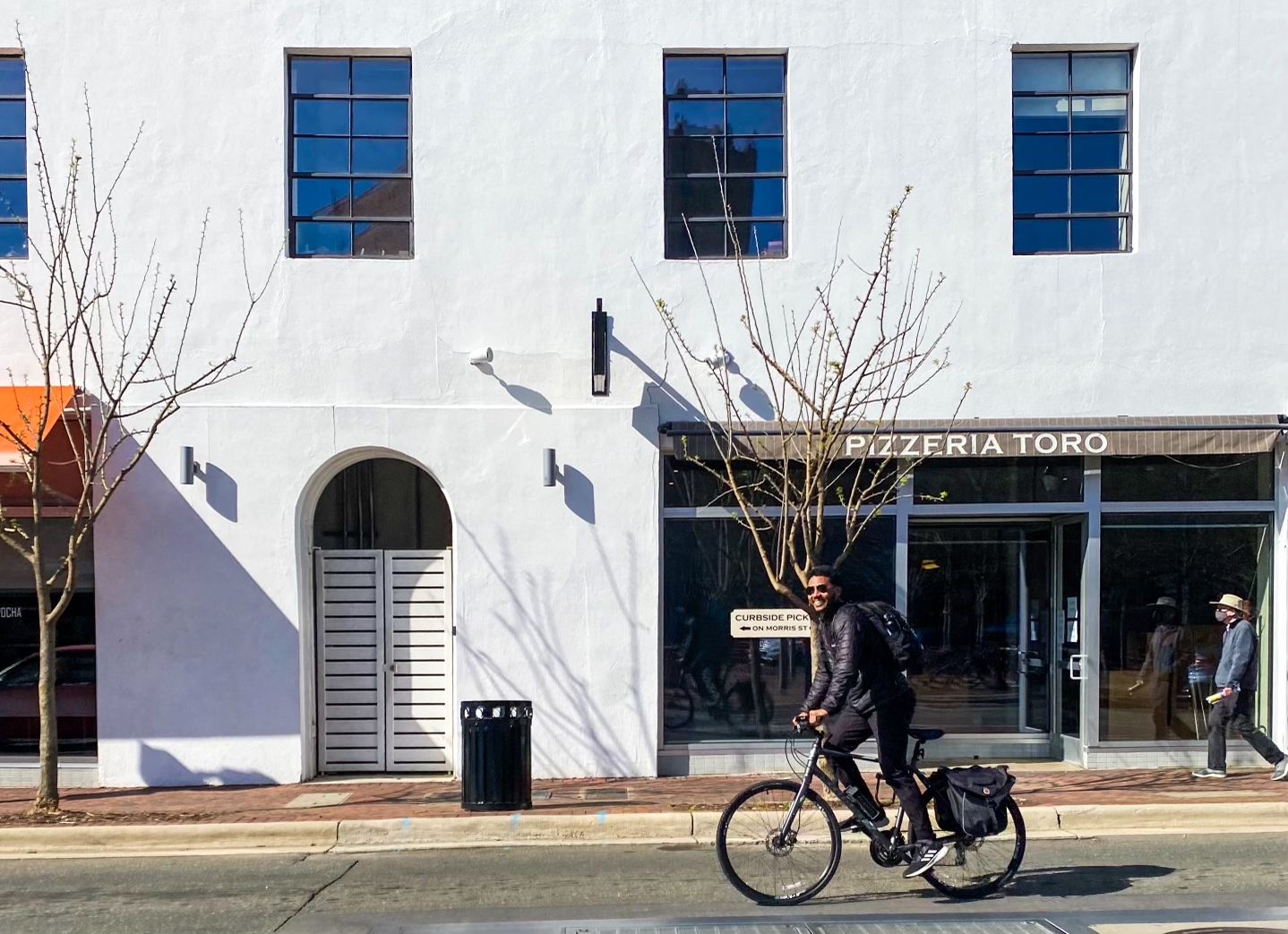
By The Horns, a newsletter I’ve been writing covering Durham City Council, has repeatedly featured stories about development in Southeast Durham and the contentious negotiations between developers, the city, and Preserve Rural Durham. PRD is a neighborhood coalition fighting for more restrictions, if not an outright ban, on new construction in the region due to environmental concerns and, some would argue, a healthy dose of NIMBYism from folks in the county who have enjoyed their particular way of life for decades. Building more housing in Durham is non-negotiable. Our community can’t survive without it. But does it have to be in Southeast Durham? The residents might argue, “what are we getting in return for solving this issue for the city?”
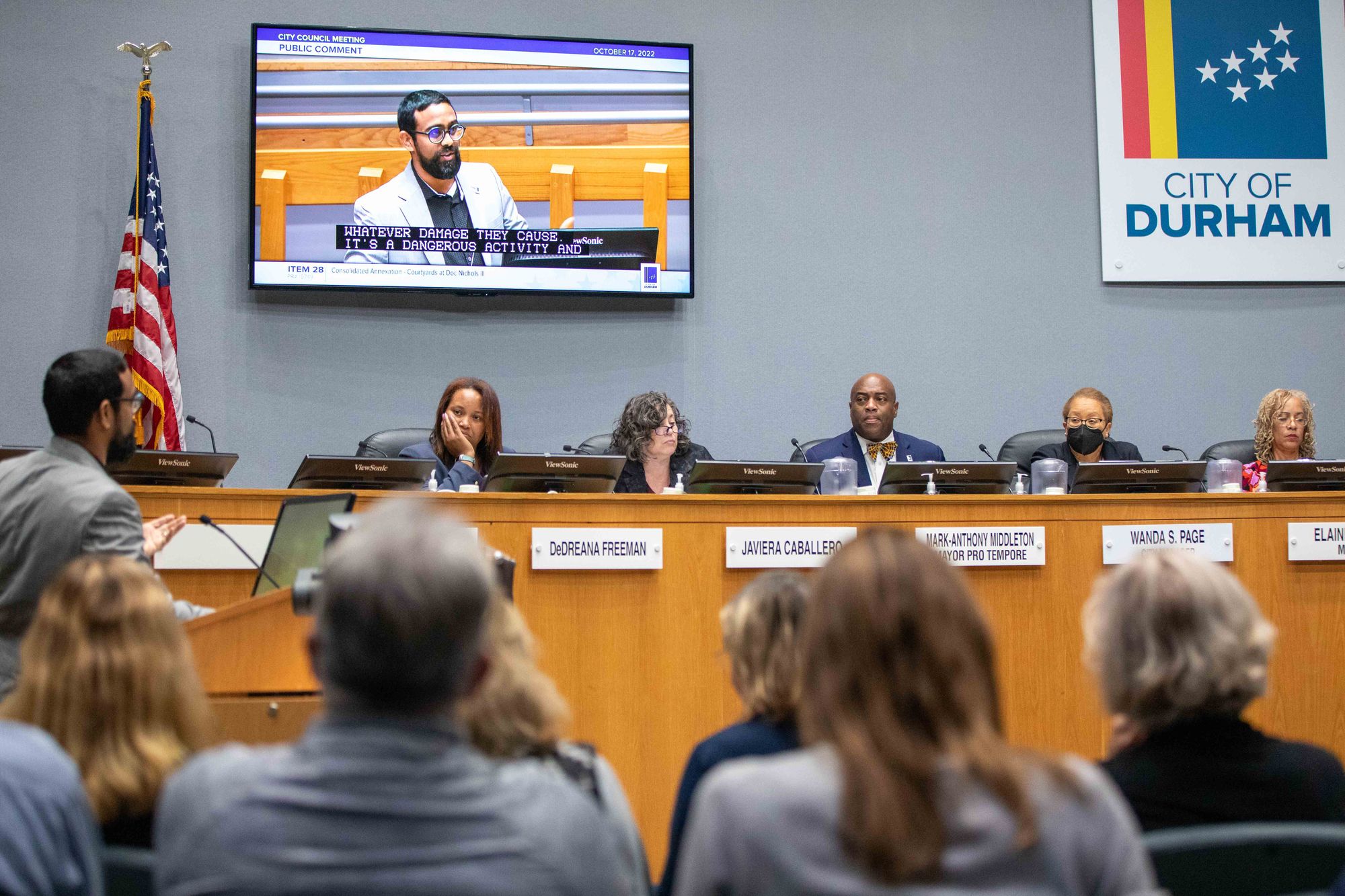
None of this happens in a vacuum. As our housing stock increases, homelessness shrinks but available land for parks and other green space decreases. As major businesses move to the area and the population grows, more high-paying jobs hit the marketplace but our classrooms and streets become overcrowded. These considerations are not just about giving and taking, but the abundance or scarcity of any resource in question.
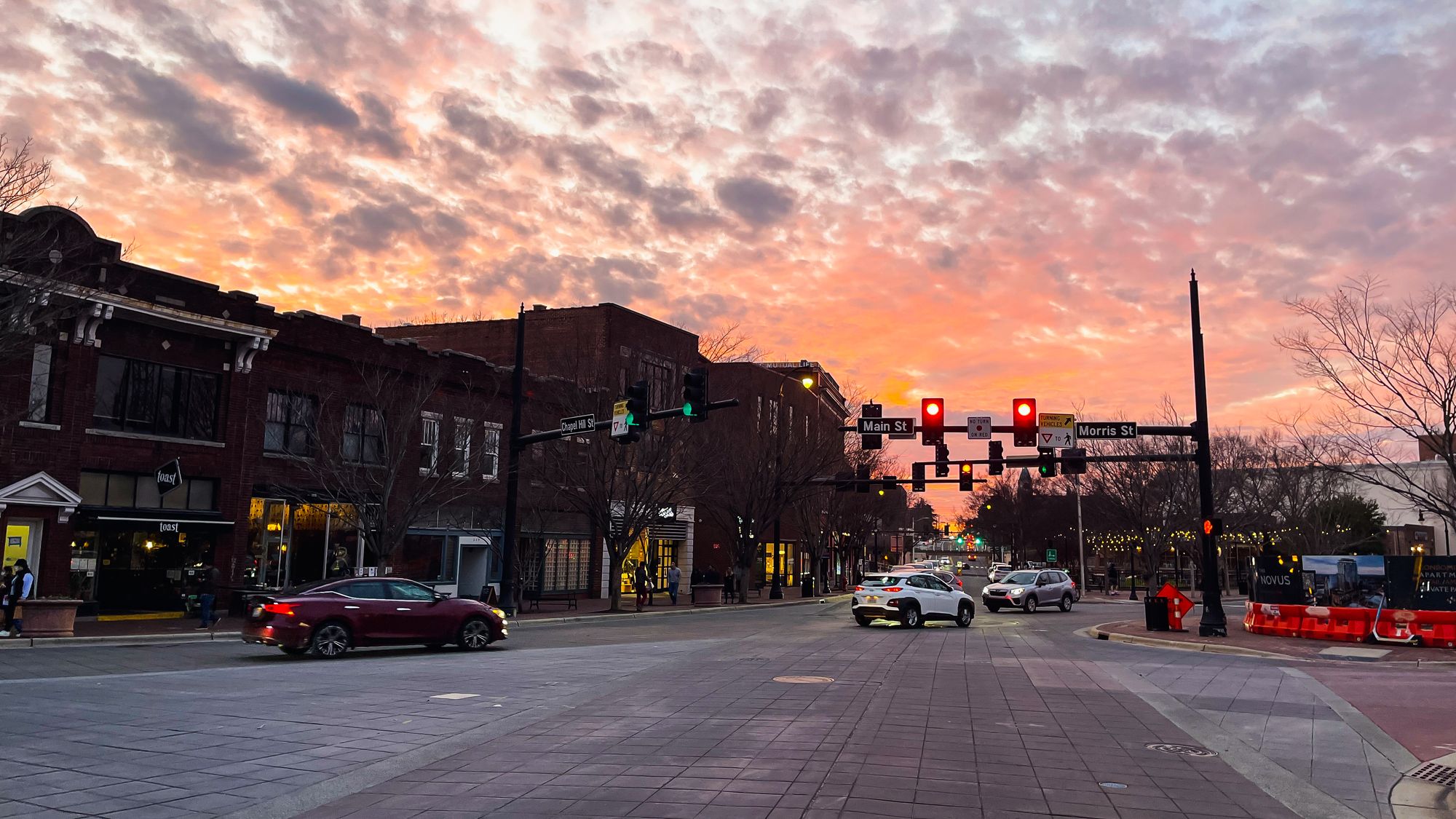
Downtown Durham could lose half its coffee shops and that sweet cocoa diesel fuel would keep flowing at plenty of other establishments. I’d be willing to give up one or two cafes if it meant more bodegas that sold cheap eats and groceries, or a more substantial option to replace Los Primos and Food World, two locally-owned grocery stores that will be sorely missed by nearby residents.

To maintain the necessary foot traffic to support those bodegas and grocers, we’d need more housing downtown which inevitably includes giant condo towers like One City Center and The Novus. Would I accept more density in the urban center for my dream to #CloseTheLoop to come true? Each consideration chains into five others as the jockeying for position continues. That tension is less about any individual choice and more about setting a vision for the type of community we want to participate in, and what we’re willing to sacrifice, or fight for, to create it.



